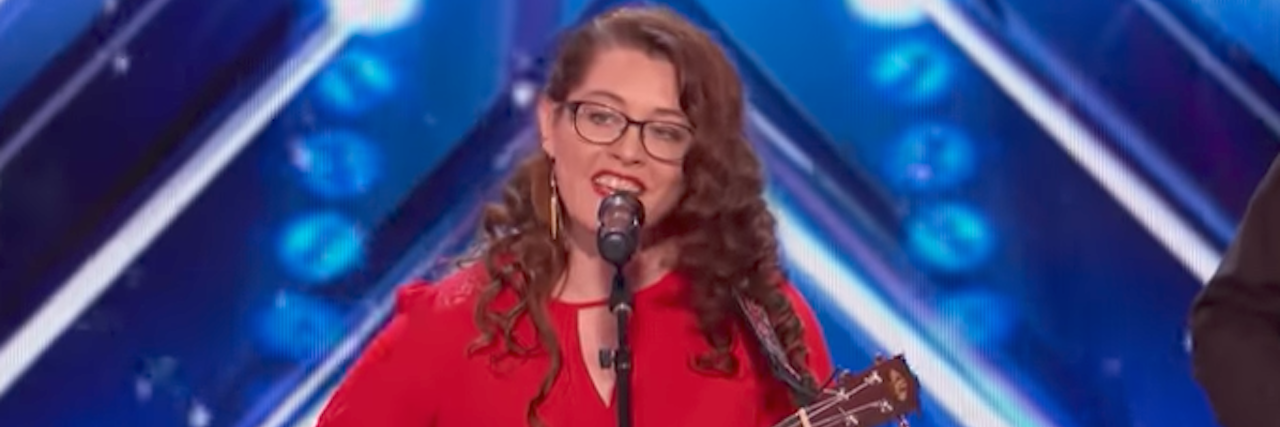Watch as This Singer Who’s Deaf Due to Chronic Illness Slays on ‘America’s Got Talent'
Mandy Harvey, a 29-year-old singer from Orlando, has been deaf for 10 years, but last night, she blew the “America’s Got Talent” judges away with a performance of her original song.
Harvey told judge Simon Cowell she’s been singing since she was 4 years old. When she lost her hearing at age 18, due to a connective tissue disorder that caused neurological damage, she stopped singing. Then, she learned how to use muscle memory and visual tuners, perform without shoes so she can feel the vibrations in the floor, and trust her pitch, all of which allow her to sing even without her hearing.
Watch Harvey’s performance of her song “Try,” which earned her Cowell’s “Golden Buzzer,” an invitation to go directly to the live round of the competition. Describing the meaning of the song, Harvey said, “After I lost my hearing I gave up, but I want to do more with my life than just give up.”
In an interview with the BBC earlier this year, Harvey said her dad, a fellow musician, suggested she start singing again to help deal with the emotions she was experiencing after her illness took a quick turn and she lost her hearing.
“I stopped leaving my room, I had trouble getting out of bed, it was a struggle to breathe. I didn’t eat, I didn’t shower, it all fell apart in a very quick motion,” Harvey said. “I have a connective tissue disorder. I have very fragile nerves and they deteriorated and that was caused by several different factors including a bunch of surgeries, a bunch of medications, the stress and hormones of being 18… I deal with my joints and nerves on a daily basis. I dislocate from head to toe. All the time I wake up and my fingers are dislocated. It is what it is, that’s the worst but the best way of saying it.”
She expected singing to help her accept the end of that part of her life; instead, she and her voice teacher realized she could still sing on pitch, and she began performing professionally.
“[Singing again] was supposed to be the closing of a chapter,” Harvey said, “but it opened up a bigger one.”

